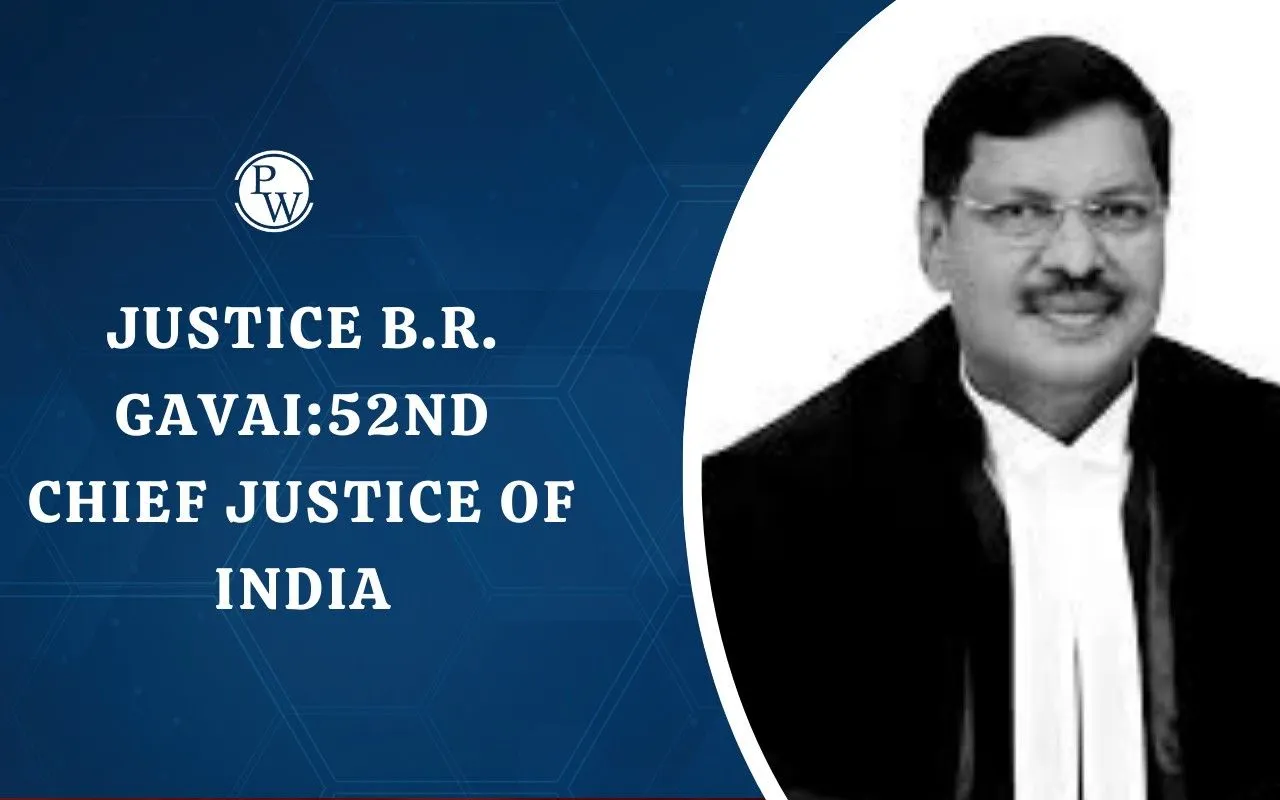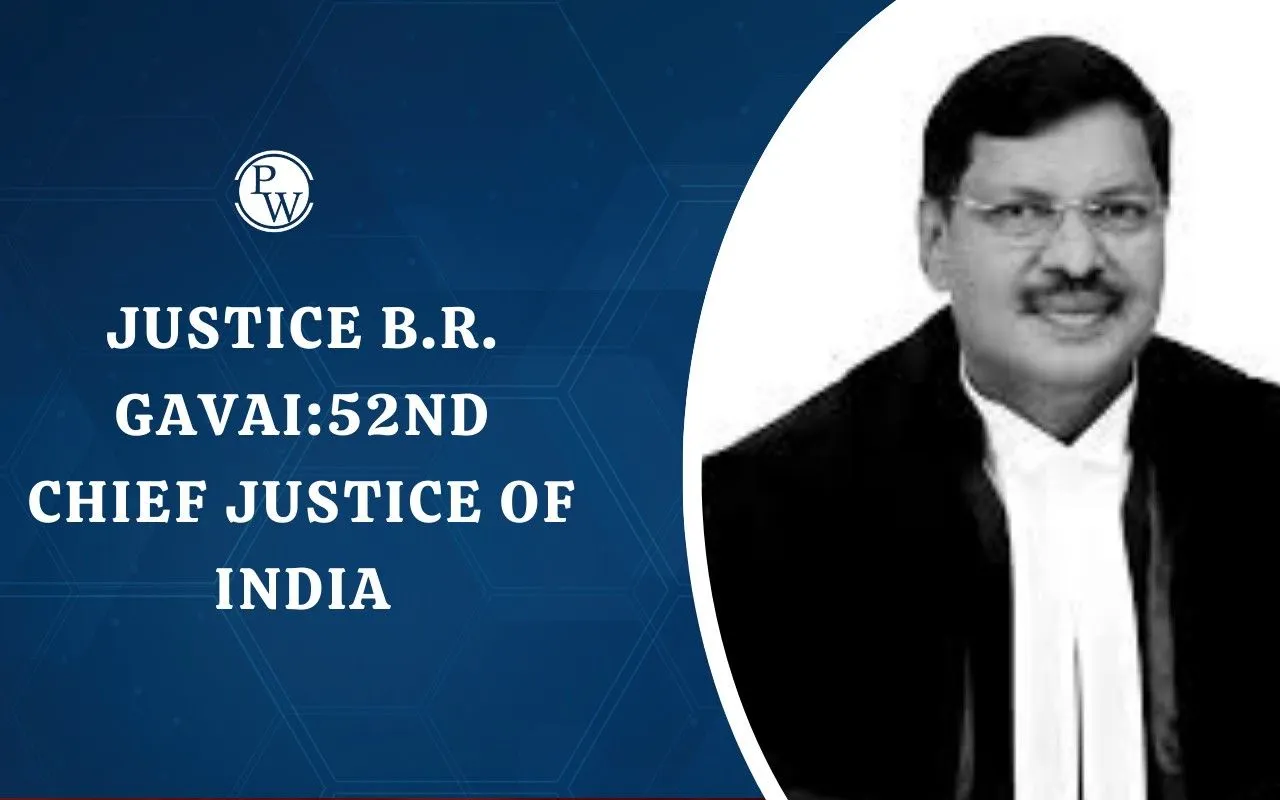

The rise of Justice Bhushan Ramkrishna Gavai to the grand post of Chief Justice of India is a turning point in the history of judicial developments in the country. He was born on November 24, 1960, in Amravati, Maharashtra, and this marked his high point in the Indian judicial system. A bright career was established during his college life, which was founded at the Dr Babasaheb Ambedkar College of Law, Nagpur University.
Justice B.R. Gavai Overview
Justice Bhushan Ramkrishna Gavai's formative years provided a strong basis for his later contributions to the legal field. His upbringing, influenced by his father, R.S. Gavai, a notable Ambedkarite leader, instilled principles that would shape his professional life profoundly.
|
Justice B.R. Gavai Overview |
|
|
Aspect |
Details |
|
Post Category |
Justice B.R. Gavai Overview |
|
Full Name |
Bhushan Ramkrishna Gavai |
|
Birthdate |
24 November 1960 |
|
Community |
Buddhist; Scheduled Caste |
|
Legal Career Start |
Enrolled as Advocate: 16 March 1985 |
|
Early Practice |
Practised mainly at the Nagpur Bench of the Bombay High Court (1987–1990) |
|
Government Pleader |
Assistant Government Pleader & Additional Public Prosecutor, Nagpur Bench (1992–1993) |
|
Government Pleader & Public Prosecutor for Nagpur Bench (from 17 January 2000) |
|
|
Bombay High Court |
Elevated Additional Judge: 14 November 2003 |
|
Permanent Judge: 12 November 2005 |
|
|
Supreme Court |
Appointed Judge: 24 May 2019 |
|
Chief Justice of India |
52nd Chief Justice, Sworn in: 14 May 2025; Retired: 23 November 2025 |
|
Notable Judgments |
Part of the Constitution Bench upholding the Article 370 abrogation |
|
Judgments spanning constitutional, criminal, and administrative law |
|
|
Contributions |
Reforms in judicial transparency, backlog reduction, and digital justice |
Justice B.R. Gavai Professional Trajectory and Judicial Ascent
Justice Gavai's extensive legal career spans several decades, marking a steady progression from a practising advocate to a Supreme Court judge, eventually leading to his appointment as Chief Justice. His unwavering commitment to jurisprudence is evident in each role he undertook with dedication.
Justice Gavai began his legal practice as an advocate, building a solid foundation at the Nagpur Bench of the Bombay High Court. His expertise quickly led to various governmental appointments, preceding his distinguished service on the bench. He demonstrated consistent excellence across these diverse responsibilities.
Justice B.R. Gavai Significant Rulings
Justice B.R. Gavai has sat over and made contributions towards a number of landmark judgments that have played an important role in the legal arena of India.
-
Rahul Gandhi v Purnesh Ishwarbhai Modi (2023): Justice Gavai in the three-judge bench is crucial in overturning the conviction of criminal defamation against Rahul Gandhi, and the decision has significant political consequences.
-
Manish Sisodia (2024): He served in the Division Bench, which made a wise decision to allow former deputy chief minister of Delhi Manish Sisodia to be bailed after two full years of jail detention, which in this case is 17 months.
-
Advocate Prashant Bhushan: Justice Gavai, presiding over a case that convicted Advocate Prashant Bhushan of contemptuous comments over his tweets, has put a strong foot forward by the judiciary in regard to the subject of public criticism that crosses limits.
-
Journalist Teesta Setalvad: A bench headed by Justice Gavai ordered bail to journalist Teesta Setalvad, who, as Justice Gavai stated, described the rationale of the Gujarat High Court in refusing bail as perverse and unsound in law.
-
State of Punjab v Davinder Singh (2024): In his concurrence, he was a strong advocate of sub-classification of the Scheduled Caste, and he suggested that the so-called creamy layer should not be included in this group, and the resources should be distributed equally among the really deserving.
